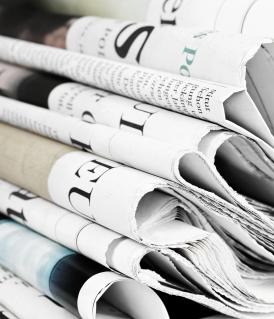Radio and television

Germany’s public service broadcasters have a legal mandate to supply as many people as possible with information, education, advice and entertainment. They follow the British model as corporate bodies funded by licence fees or public entities, and form the second pillar of a dual system built on both public and private services. This principle has essentially remained unchanged since the foundation of the Federal Republic in 1949.
Television in 30 languages
Germany’s public service broadcasters include ARD, which stands for Arbeitsgemeinschaft der öffentlich-rechtlichen Rundfunkanstalten der Bundesrepublik Deutschland (the Working Group of Public Broadcasters of the Federal Republic of Germany), ZDF (Zweites Deutches Fernsehen) and Deutschlandradio. Deutsche Welle (DW) is Germany’s international broadcasting service and a member of ARD. DW broadcasts in 30 languages, providing TV, radio, Internet and media development as part of the DW Academy. The German News Service provides news in nine languages free of charge for media organisations and interested members of the public.



